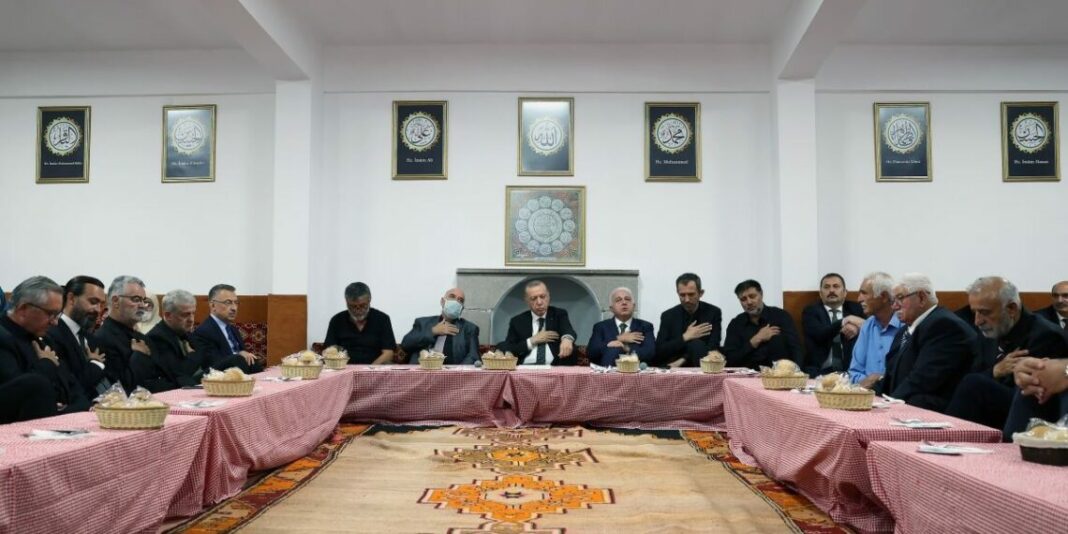Alevi leaders and politicians have condemned Turkish President Recep Tayyip Erdoğan’s recent push to establish a new government institution to provide financial support to Alevi houses of worship (cemevis) and hire spiritual leaders, saying the policy aims to bring their faith under state control, Turkish media reported on Friday.
Alevis are historically the largest religious minority group in Turkey, and they fulfill religious obligations and hold ceremonies not in mosques but in cemevis. Alevis make up as much as 20 percent of Turkey’s 85 million population.
Erdoğan attended the opening ceremony of a cemevi on Friday.
Turkey is a majority Sunni country, and millions of the religious, conservative masses view Alevis as apostates. Turkey’s religious authority the Diyanet does not recognize cemevis as places of worship. As a result, mosques have civil servant imams and enjoy government subsidies for their electricity and water bills, but cemevis struggle to pay high utility bills as they fall under the status of “commercial users” and don’t have government-paid clerics like Sunnis do.
During the ceremony, Erdoğan announced that a new institution was to be established under the Ministry of Culture and Tourism, named the Directorate of Alevi Bektaşi Culture and Cemevis.
According to Erdoğan, the institution will take care of cemevis’ financial obligations such as utility bills and maintenance costs.
“The people who run cemevis will be given a staff by the state if they want one,” Erdoğan said.
The new policy was denounced by some leaders of the Alevi community and other prominent Alevis.
Ali Kenanoğlu, founder of the Federation of Alevi Foundations, said, “This is not an AKP [Justice and Development Party] project, but a state project,” implying that a deeper bureaucratic plot to put Alevism under state control is at play.
Kenanoğlu added that the government wants to take Alevism under control through the Ministry of Culture in a way that the Sunni public and Sunni Islam have been taken under control by the state through the Diyanet.
“A faith under government control should be out of the question,” said Reha Çamuroğlu, who was an AKP deputy between 2007 and 2011.
Çamuroğlu said the policy is an attempt to appropriate Alevism. “Will the ministry coordinate worship? Will they allocate a budget to the Alevi community’s houses of worship? Who is going to use that budget? It would be enough if they provided the privileges that mosques enjoy. Beliefs must be independent of the state. Believers themselves must pay for their religious activities,” he said.
There are long-standing tensions between the Alevi and Sunni communities in Turkey. Hundreds of Alevis were killed in pogroms, which many now believe were masterminded by groups inside the state, in the cities of Çorum, Yozgat and Kahramanmaraş in the 1970s.


